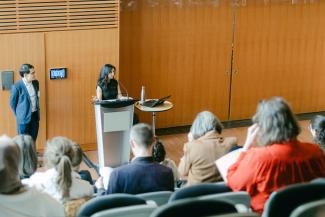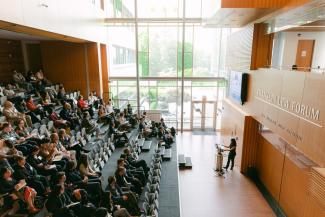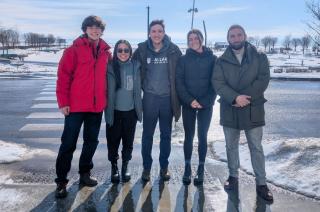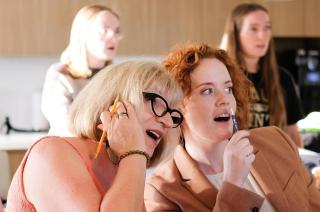Reflections on the 26th annual meeting of the Association for the Study of Law, Culture and the Humanities

Julen Etxabe
Associate Professor and Canada Research Chair in Jurisprudence and Human Rights
Sep 10, 2024
On May 17-18, 2024 the Peter A. Allard School of Law hosted the 26th annual meeting of the Association for the Study of Law, Culture and the Humanities (LCH), which is the oldest organization of scholars in North America devoted to interdisciplinary, humanistically oriented legal scholarship.
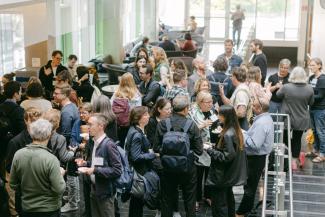
This year’s theme, “Senses of Law,” invited participants to reflect on the myriad ways in which law is “sensed,” as well as law’s manners of making and unmaking “sense.” The conference showcased excellent panels on listening, visuality, memory and story-telling, law and film, the construction of legal spaces, legal aesthetics, emotions and judgment, as well as panels on social movements, property and colonialism, and Indigenous justice. As usual, various author-meets-readers roundtables were organized to discuss recently published works. The keynote address was delivered by Professor Renisa Mawani, Canada Research Chair in Colonial Legal History at UBC’s Department of Sociology, who spoke of the sea as a complex legal construct steeped in histories and networks of ongoing colonialism.
In addition to the conference, it is now customary to organize a Graduate Student Workshop the day before the conference. This year’s graduate workshop was held in Green College, which afforded students the opportunity to experience the LCH community in a smaller venue, with more sustained contact with one another and with a dedicated group of faculty mentors.
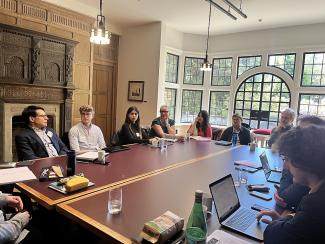
The conference also awards a series of annual prizes: the Julien Mezey dissertation award for the dissertation that most promises to enrich and advance interdisciplinary scholarship at the intersection of law, culture and the humanities; the Austin Sarat prize for an outstanding graduate paper presented at the annual conference; and the James Boyd White award, which recognizes and honors the originality and excellence of individual contributions to the field. View this year's award winners.
The fact that we were able to attract all these people to Allard attests to the vitality of law & humanities scholarship in Canada, which has gained increased visibility thanks in part to collective efforts such as those of the Canadian Network of Law and Humanities (CNLH). As host of this year conference and one of the conveners of CNLH, I encourage anyone interested to visit our dedicated website, where you can keep track of law & humanities events and workshops, as well as to learn about research opportunities, and sign up to receive a monthly newsletter.
I would be remiss if I failed to mention that the conference and the graduate workshop could not have been possible without the generosity of our Allard hosts and UBC sponsors, in particular, the Public Humanities Hub, Green College, the Department of History, the Department of Philosophy, the Department of Anthropology, the Department of English, as well as the Institute for Gender, Race, Sexuality and Social Justice. Last but not least, I want to thank personally all the Allard student volunteers who generouly donated their time and efforts to making these events truly memorable.
Stay tuned for the 2025 instalment of LCH, which will take place at Georgetown University Law Center in Washington, DC.
- Allard School of Law
